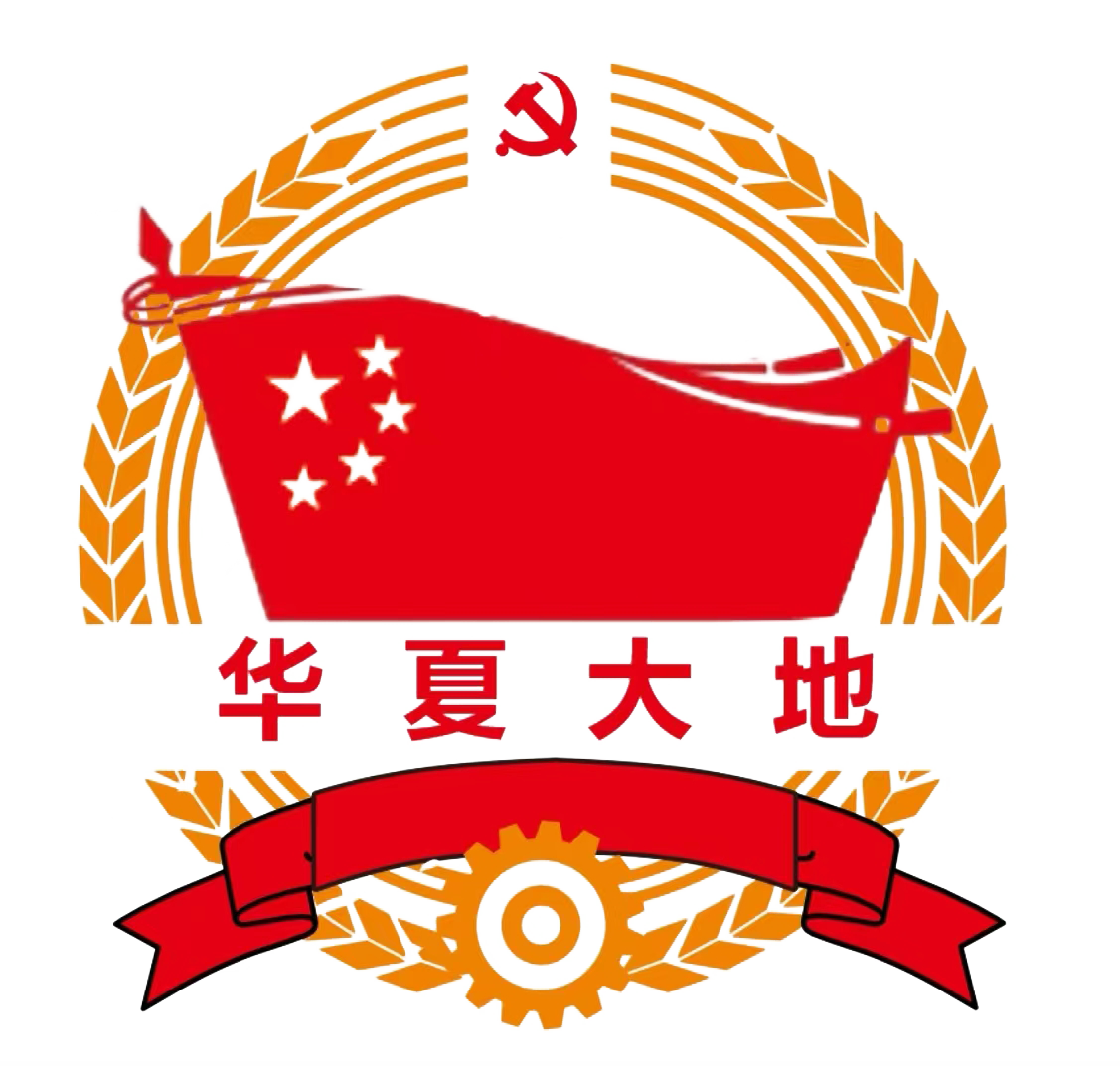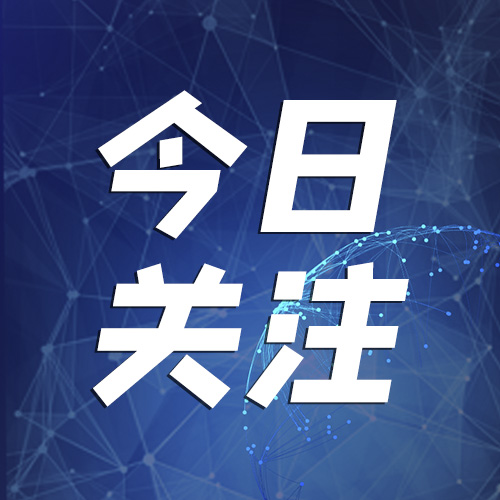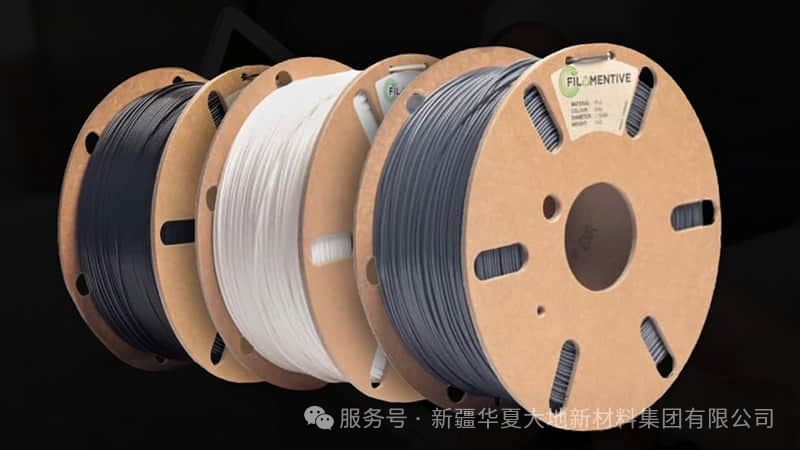The eight-year-old Bawang Chaji, ready to go to the United States stock market listing. In the early morning of March 26, Bawang Tea Ji, who repeatedly went to the United States for listing, finally submitted a prospectus to the United States Securities and Exchange Commission. To go to the listing of this step, ancient tea with 15 years, tea with 17 years, and Misue ice City with 28 years, only in the new tea drink foam bleeding listed Nai snow tea faster step, with 6 years. In the milk tea industry, Bawang tea is a dark horse that comes from behind.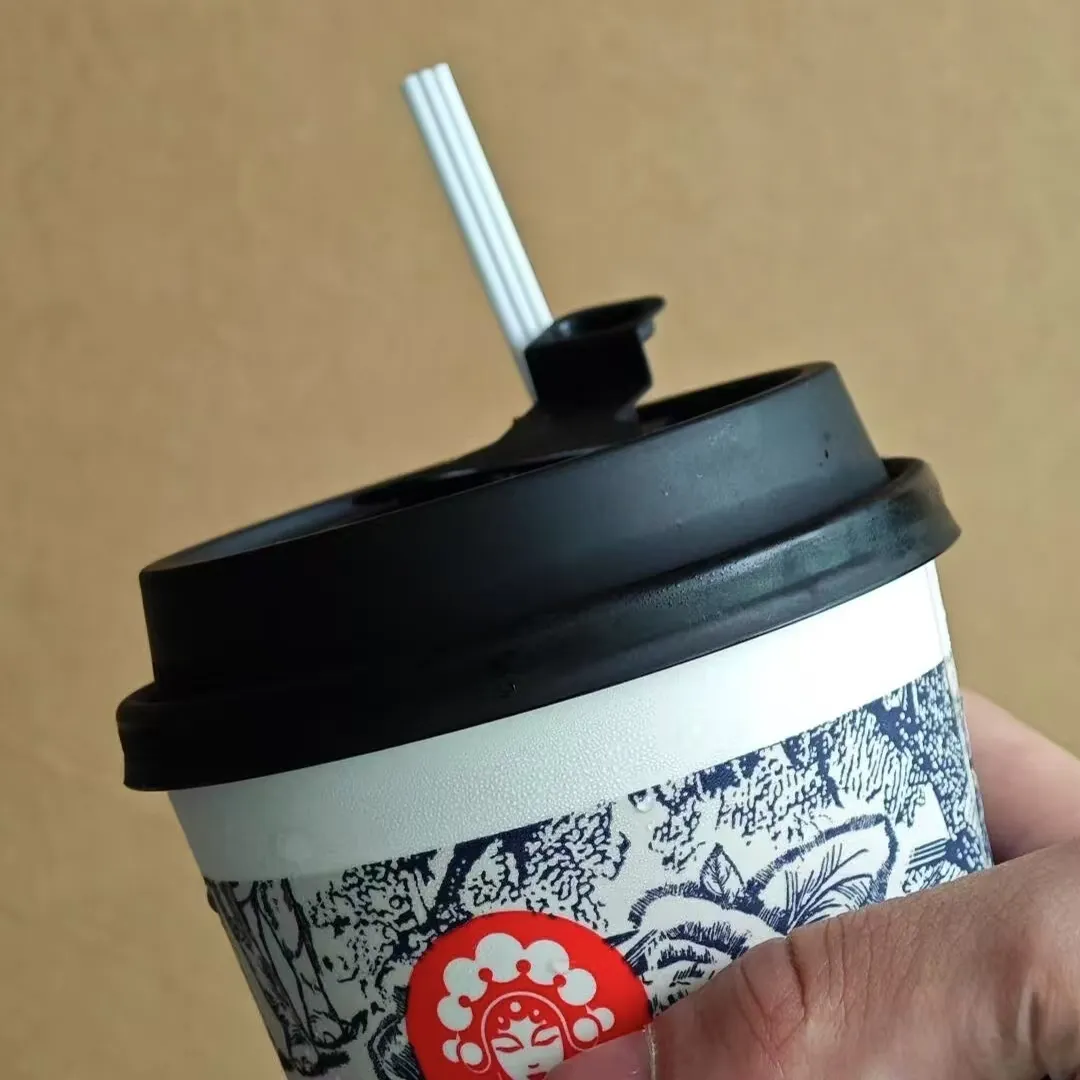
Bawang Tea Ji actively practises the concept of green development, and the PLA straw it uses is specifically flat and has three smaller holes, also known as "three quality control". Not only that, in November 2023, related reports showed that many well-known milk tea brands, including Bawang Tea Ji, began to use "three quality control". In the "three quality control" material types, PLA is one of them.
The "three quality control" has a flat shape as a whole and is unique in that it has three smaller holes. This design allows precise control of liquid flow rates. When consumers drink Bawang Chaji's tea drink, whether it contains pearl, coconut and other ingredients such as bubble tea drinks, or pure tea drinks, there will be no choking due to too fast flow rate, or because of too slow flow rate and poor suction, greatly improving the relaxed feeling and comfort of the drinking process. In addition, when consumers drink through the "three quality control", the air can be accompanied by the drink into the mouth. This gas-liquid mixing method makes the aroma of tea drink more fully distributed in the mouth. Taking the signature Boya Juxian (original leaf fresh milk tea) as an example, the milk aroma, tea aroma and air interweave, enhance the flavor of the hierarchy, so that consumers can feel the unique flavor of tea more comprehensively and intensely.
The expansion of Bawang Tea is amazing! At the end of 2022, it had just 1,087 stores; a year later, that number had jumped to 3,511, and by the end of 2024, it had soared to 6,440. In the two years when the competition in the tea market was white-hot and the overall growth rate slowed down, Bawang Tea Ji achieved a surge of more than 6 times the number of stores in two years. Big data shows that nearly 200,000 milk tea shops across the country have no choice but to close in 2024, while Bawang Tea Ji's prospectus reveals that it plans to open 1,000 to 1,500 new stores in China and around the world in 2025.
Not only is the expansion rapid, but Bawang Chaji's operational efficiency is also impressive. Prospectus data show that in 2024, the average monthly sales of Bawang Chaji single store reached 25,099 cups, compared with 8981 cups two years ago, almost twice as much. Among them, the sales of the top 30% of the stores, the average daily sales can reach 1,300 cups of tea, far more than three times the industry average. According to industry research reports, the cost recovery cycle of Bawang Chaji single store is about 9 months, and the operating profit margin of the store is 20%, which is among the best in the industry.
Such extreme expansion speed and operational efficiency have directly promoted the rapid growth of Bawang Tea Ji's revenue and profit. In 2024, the annual GMV of Bawang Chaji reached 29.458 billion yuan, an increase of 172.9%; The annual revenue reached 12.406 billion yuan, an increase of 167.4%; The net profit for the year reached 2.515 billion yuan, the net profit rate was 20.3%, and the net profit growth rate was as high as 213.3%.
Looking back on the development process of Bawang Tea, in the first four years of its establishment, it is still in the exploratory stage, and today's remarkable achievements are basically derived from the hard work of the last four years. So, in this short four years, Bawang Tea with what strategy to highlight the siege? This prospectus may be hiding the secret of Bawang Tea Ji to stand out from the competitive red Sea of tea drinking.
The cheapest in the high-end, the highest end of the franchise
Before the emergence of Bawang tea Ji, the tea industry pattern was clear and the camp was clear.
Some brands mainly attack the franchise model and deeply cultivate the sinking market. In the low price range of less than 10 yuan, Misxue Ice City takes the lead, with a very powerful low price strategy to build a solid market barriers, stores dotted all over the country. The price range of 10 yuan to 20 yuan is like a fierce red Sea, and many brands such as tea, ancient tea, Shanghai aunt, a little, and CoCo are in deep trouble. These brands rely on the long-term accumulation of operations in a specific region, or the grinding of a unique ability, and it is difficult to maintain their competitiveness, and they compete with each other who can persist in this protracted war for longer.
Another part of the brand adopts the direct mode, with the tea of Xi tea and Nai Xue as a typical representative, the target is to lock in the high-end market, the product price is more than 20 yuan, and the first and second tier cities have become their core battlefield. In the past, franchise brands mainly made profits by selling raw materials to franchisees, and direct high-end brands made profits by selling high-priced tea drinks, and both sides secured their positions and developed in their respective ecological niche. until Bawang Tea Ji was born, breaking the original balance of market power.
From the prospectus of Bawang Tea Ji, it can be seen that it positions itself as a high-end current tea shop, and the key standard for dividing high-end and low-cost tea is whether the average price per cup is lower than 17 yuan. Bawang Tea Ji product pricing cleverly falls in the range of 15 yuan to 20 yuan, this accurate pricing strategy, just cut into the market blank area between low-price brands such as Misue Ice City and high-end brands such as Xi Tea and Nai Snow tea.
In terms of franchise strategy, from the beginning of its establishment, Bawang Tea Ji intentionally avoided the direct conflict with the sinking market brands such as Misue Ice City. It will focus on high-line cities, focusing on high-spending customers. Prospectus data show that in 2024, the number of Bawang Tea Ji stores in second-tier and above cities reached 3,806, accounting for about 60.6%, and since 2022, the proportion of stores in second-tier and above cities has always remained above 50%.
Stores as the first window for consumers to contact the brand, Bawang Tea Ji adheres to the "three high" principle in store location, that is, high potential energy, high investment and high income. According to the prospectus, China's current tea market is dominated by low-priced brands, which tend to choose street stores to control operating costs. In contrast, Bawang Tea is mainly located in high-end shopping malls with high-end lifestyle brands and dining brands. This unique location strategy not only helps the brand to achieve differentiated competition, but also greatly enhances the brand image.
According to narrow-door restaurant data, among Bawang Chaji's store types, mall stores account for the highest proportion, reaching 26.18%, and nearly 80% of mall stores are located on the first floor of the mall, that is, the most expensive floor for rent. In terms of store space, a standard Bawang Chaji store has an area of 60 to 80 square meters and can accommodate about 20 customers. Compared with Xi Tea, Nai Xue's tea and other brands that focus on fresh fruit tea and need to bear high procurement costs and labor costs (such as purchasing grapes, manually peeling grapes, etc.), Bawang Tea is positioned as raw leaf fresh milk tea, and the product production process is more concise and easy to achieve standardized production, thus creating more considerable profit margins. In terms of pricing flexibility, Bawang tea Ji has more advantages than Nai snow and Xi tea, and before Nai snow and Xi tea cut prices, they seized the price range of about 20 yuan in advance.
The prospectus shows that as of December 3, 2024, Bawang Tea Ji stores are the largest among high-end freshly made tea brands, accounting for 20.3% of the market share. Bawang Tea Ji cleverly adopted the misplaced competitive strategy, highlighted its high-end attributes in the face of joining brands, highlighted the price advantage of high-end brands, successfully opened up its own market niche, and truly achieved "high-end tea drinks in the price of the people, and joined tea drinks in the quality of high-end".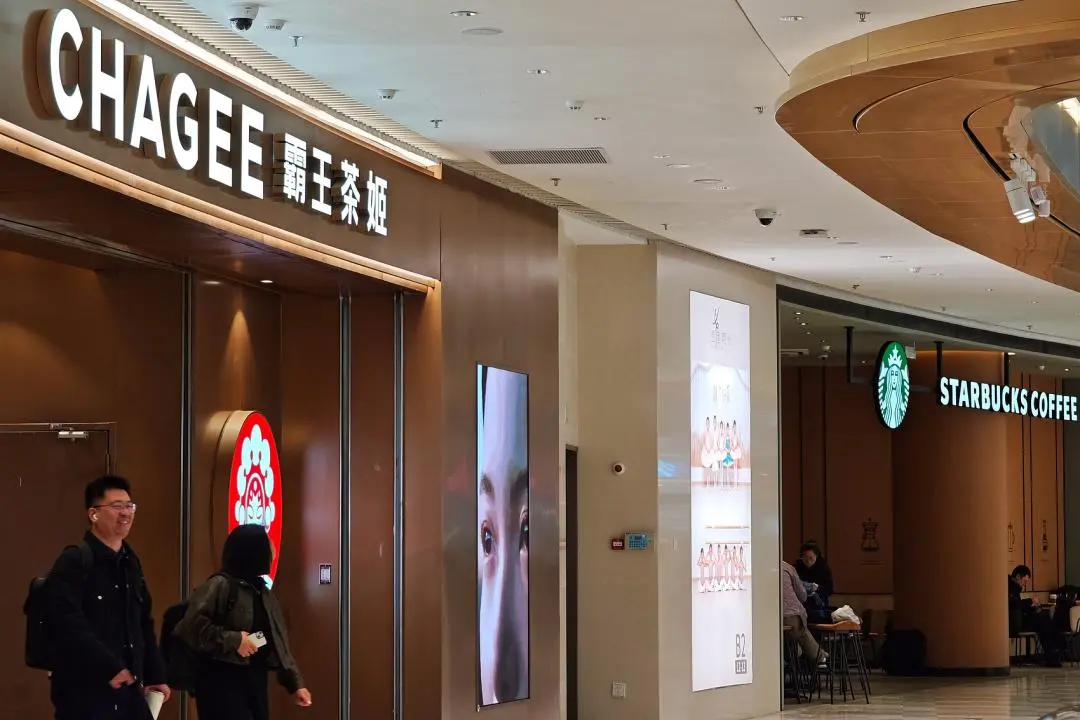
Break the paradox of expansion and quality control
In many tea brands to expand the scale, everywhere to recruit franchisees, the situation is very different, many franchisees take the initiative to line up, eager to obtain the franchise qualification. Some franchisees revealed to the media that in popular areas such as Guangdong, Jiangsu and Zhejiang, new franchisees need to line up through the lottery if they want to win the spot. If you get a low number, you often have to wait another month.
Usually, the positioning of high-end tea brands, relying on brand premium profit. Due to the concern that the quality control problems that may occur under the franchise model will damage the brand image, most of these brands choose the direct operation model, which has an inherent deficiency in the expansion speed. However, for tea brands, scale is not only the key path to profitability, but also the core element of building brand competition barriers. Zhang Junjie, the founder of Bawang Tea Ji, early insight into the importance of scale, he made it clear in an interview: "The primary basis of the milk tea track is the scale effect, only to reach a certain scale, you are eligible to compete in the market."
The dilemma facing direct brands is that the larger the scale, the higher the operating costs, and ultimately it is easy to fall into the dilemma of loss. And if you want to expand the scale, the franchise model seems to be an inescapable choice. However, the difficulty of the franchise model is how to ensure the management level and profitability of the franchise store to prevent its negative impact on the brand. Hetea's Nie Yunchen, for example, was previously cautious about joining, arguing that it was only appropriate to open up franchises when the brand core was strong enough that the brand culture would not be weakened by franchisees.
Bawang Tea Ji has found a new way to achieve high operational efficiency through the implementation of extreme standardized operations, and successfully broke the seemingly irreconcilable contradiction between expansion and quality control. When opening up new markets, Bawang Tea Ji adopted a strategy different from traditional tea brands - "first set up branches, then open branches". At the same time, we will first open self-operated stores and accumulate sufficient local operating experience before gradually opening franchise business.
In the early stage of development, Bawang Tea set a lower threshold for franchisees. Taking 2021 as an example, to open a Bawang tea Ji franchise store, the capital investment is only 250,000 to 300,000 yuan. In some provinces, it also launched 100 preferential places free of franchise fees, brand fees and equipment subsidies, and the renovation cost at that time was only half of the later period. At this stage, Bawang Tea Ji attracted a large number of franchisees by simplifying the franchise process, such as rapid review of applications, and rapid opening after signing, and quickly realized the "original accumulation" of the number of stores from 200 to thousands with the advantage of "low cost and rapid return".
In the process of continuous expansion, in order to effectively avoid the quality control and management problems caused by the uneven quality of franchisees, Bawang Tea Ji innovatively launched the hosting model. There are professional local support teams in 32 provinces, municipalities and autonomous regions across the country. From store location, store decoration, supply chain management and back-end e-commerce operations and other links, the brand is responsible for the whole process, franchisees only need to provide business location and required funds.
With the continuous expansion of brand influence, Bawang tea Ji's requirements for franchisees are increasingly strict. By 2024, the total cost of joining Bawang Tea Ji has increased to more than 800,000 yuan (including decoration, equipment and other expenses), the store area requirement has increased from 40 square meters to 60 square meters, and the location is limited to the core business circle, and it is clearly prohibited to choose underground or high floor stores, in order to strengthen the high-end positioning of the brand. At the same time, there are clear requirements for franchisees in terms of age, work experience, idle capital, etc., and the approval rate for joining applications in 2023 is only 15%.
In terms of store operations, Bawang Tea Ji has greatly simplified the operation process with full automation and digital technology. The store is equipped with a fully automatic tea maker, a tea espresso machine and a carbon dioxide bottle cooler. On the first day of entry, new employees do not need to undergo complex training for up to three months, just scan the code and operate the automatic tea machine, which can produce efficiently according to the standard of "8 seconds/cup, 2‰ difference rate". Today, as an employee of Bawang Tea Ji, the work content is mainly simplified into three steps: ordering, operating automatic tea machine, filling cups and packaging.
The automatic tea machine also has real-time data recording function, which can record the amount of raw materials and the number of product orders for each cup in detail, and send these data back to the cloud in real time. This not only facilitates statistical analysis of data, but also helps optimize the upstream and downstream industry chain. According to the prospectus, Bawang Tea has successfully achieved five online management models of "product delivery online", "people online", "goods online", "store online" and "payment online". When the store realizes full-link digital online operation, the main work of the store is basically focused on the final product delivery and providing quality services to consumers. This is exactly what Zhang Junjie expects, in his view, the core function of the store in the future will focus on the distribution of the last mile of the product and the center of creating the ultimate experience for users.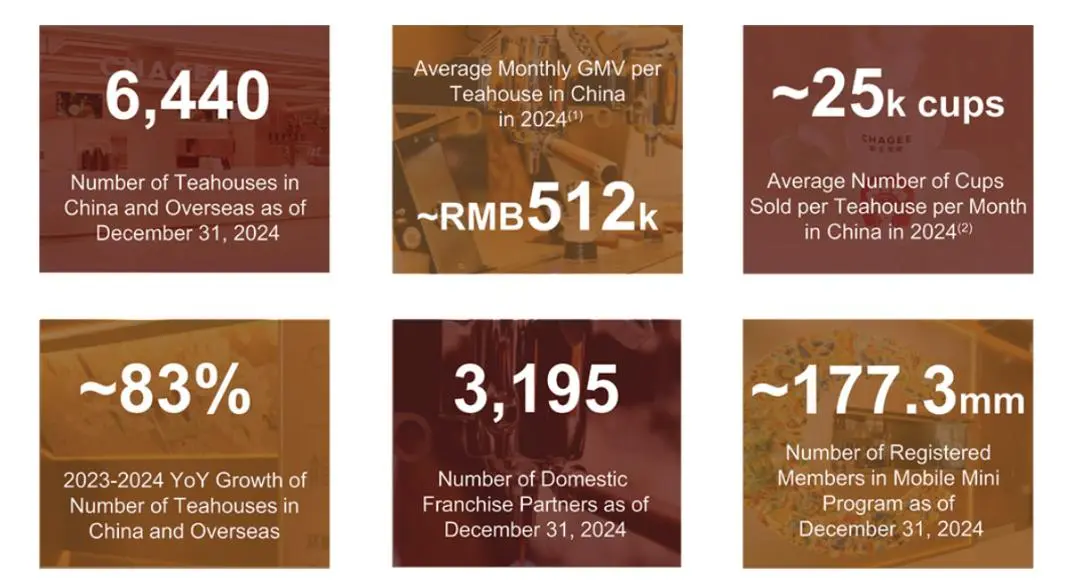
When standardization is achieved to the extreme, the difference between franchise and direct operation is eliminated to the greatest extent, ensuring that the single store profit model is not deformed due to the management level.
According to the latest data in the prospectus, the average number of monthly cups of Bawang Tea Ji in 2024 is 25,099 cups, which has nearly tripled from 8981 cups two years ago. The top 30 percent of stores with the best sales can average 1,300 cups of tea per day, more than three times higher than the industry average. The average monthly GMV in stores increased from 177,500 yuan in 2022 to 51.1,700 yuan in 2024, an increase of 188.2%.
In 2023 and 2024, the closing rate of Bawang Chaji is only 0.5% and 1.5%. According to the prospectus, in the first nine months of 2024, the closure rate of Gu Ming was more than 4.5%, and the closure rate of Misue Ice City was more than 2.8%. According to the research report data released by Hua 'an Securities in May 2024, the average store area of Bawang Tea Ji is 80 square meters, and the average number of employees is 15, which is a high level in mainstream tea and coffee stores. However, the payback period of its single store is about 9 months, and the operating profit margin of its stores is 20%, ranking in the forefront of its peers.
Only when franchisees make money can brands make money. Relying on the ultimate standardized management, Bawang Tea Ji achieved a radical expansion of 6 times in two years through franchisees, but also let franchisees earn money, willing to queue up to join the store, to achieve a sense of "mutual benefit and win-win".
600 million Boya strings sold in three years
Almost every tea brand needs a blockbuster item, for Misue Ice City it is lemonade, for Heicha it is succulent grapes, and for Bawang Tea Ji it is a bowtooth.
From January 1, 2021 to August 13, 2024, Bawang Chaji sold a total of more than 600 million cups.
This is a Bawang Chaji milk tea launched in 2017, the tea base is jasmine snow bud, heavy tea taste light milk taste. Although it was born almost at the same time as the brand, Boya absolute string really sold in 2023. Bawang Chaji's menu has undergone several adjustments, in the early years, Bawang Chaji not only sold milk tea, cheese milk cover tea, but also sold fruit tea, taro tea and pure tea, and the number of fresh fruit tea on the menu of Bawang Chaji was once more than milk tea.
In 2021, Bawang Tea Ji began to drastically streamline the product line and promote the large-product strategy. The first choice is milk tea, fruit tea is considered to be a "business for young people", not suitable for middle-aged and elderly people, and milk tea has experienced a longer test, while the supply chain requirements are lower. Secondly, the selection of Boya Juxian as the main product, jasmine tea bottom taste acceptance is high, popular, while tea more milk less "not easy to greasy", but also addictive.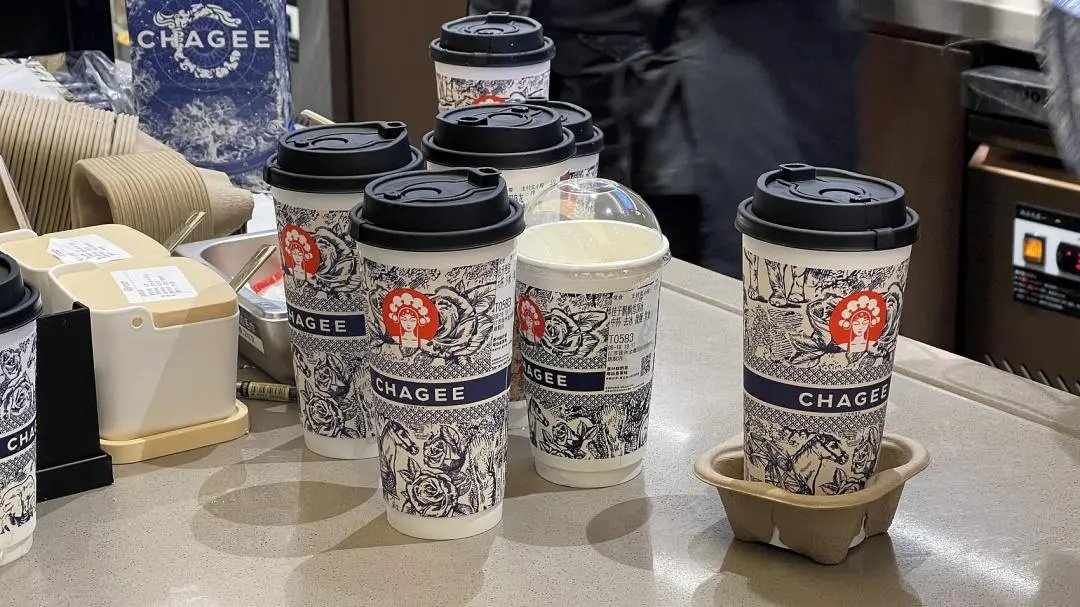
Unlike many tea brands that are trying to find growth in the fierce competition through product innovation and category expansion, Bawang Tea Ji has launched 14, 22 and 15 new products respectively in 2022, 2023 and 2024, which is unusually restrained compared with its peers. Even the Misue Ice City, which is firmly the first in the industry, launched 47 and 105 new products in the first nine months of 2023 and 2024, respectively.
The original leaf tea latte has always been the core category of Bawang Tea, and according to the prospectus, in 2022, 2023 and 2024, about 79%, 87% and 91% of the total GMV of Bawang Tea Tea in the Chinese market came from the signature tea latte products, of which about 44%, 57% and 61% of the GMV came from the three best-selling tea lattes.
Today, Bawang Tea Ji's core menu has a total of five product lines, 19 products, SKU is far lower than most tea brands. One of the key Tea lattes is Tea latte, Teaspresso and Teaosino. They are tea latte, Teaspresso and cappuccino.
The strategy of focusing on large single products effectively reduces the complexity of SKU and the loss of raw materials, and ensures the operating efficiency of the chain from the product level.
The prospectus also mentions that Baking Tea Ji's core menu is "inspired by the menu of modern coffee chains", which not only play the user's mind, enhance consumer awareness and loyalty, but also enable the brand to ensure product quality, consistency and convenience through more centralized, streamlined and efficient supply chain management and highly automated tea production process. Ultimately improve operational efficiency and service quality.
Lower cost, more efficient supply chain
The minimalist SKU, large product strategy also allows Bawang Tea Ji to be more focused on the supply chain. "The only supply chain Bawang Chaji knows how to make is tea," Zhang Junjie said in an interview in 2021.
In the upstream procurement process, unlike the variety of fresh fruit tea and the heavy season, the ingredients list of Boya Juxian only has tea soup, milk and syrup, and only needs to purchase milk, tea and packaging materials. Bawang Tea Ji will purchase nearly 13,000 tons of raw leaf tea in 2024, cooperate with more than 20 high-quality tea factories across the country, and have 2700 acres of self-operated tea hills in Yunnan and Anxi. In the milk, each region has different partners, such as Sichuan, Chongqing, Jiangsu, Zhejiang and Shanghai and taste of whole milk cooperation, Yunnan choose New hope fresh milk, Guangxi choose Huang's fresh milk.
At the end of 2023, Bawang Tea Ji also established a joint venture with Tea hundred Road packaging materials, supply chain companies, light assets and heavy cooperation. Some investors have told the media that "many resources in the supply chain of Bawang tea are introduced by Wang Xiaoken."
In the middle processing link, Bawang Tea Ji has built tea processing plants in Chaoshan and Jiangmen, which is also for standardization, Zhang Junjie said, "the intermediate processing and mixing links of tea can be standardized, and at least 90% stability can be achieved." Pre-processing of tea soup and small ingredients, the store only needs to complete the final assembly, and the production time of a single cup is compressed to 30 seconds.
In terms of warehousing and logistics, Bawang Tea Ji has established an efficient logistics system with very little capital expenditure. Bawang Tea Ji has a two-level storage system of central and regional warehouses, spread across 37 locations in China, and is able to provide cold chain transportation and next day delivery services for stores. In 2024, logistics costs will account for less than 1% of total GMV in China and overseas.
In the end of the material management, Bawang Tea Ji and Luckin learn to build a digital center, real-time monitoring of global store sales data, dynamic adjustment of raw material production and distribution, with data to drive the efficient operation of the supply chain. According to iResearch, Bawang Tea Ji had about 5.3 days of inventory turnover during the same period, the lowest among all existing tea brands in China with more than 1,000 stores.
The most story-telling tea brand
From the initial use of luxury design on packaging materials to the recent Olympic Games signed a group of athletes to carry out sports marketing to emphasize the concept of "health", the importance of marketing to Bawang Tea Ji is self-evident. Within Bawang Chaji, marketing and products were once dual lines. In 2022, Zhang Junjie directly managed the brand marketing affairs of Bawang Chaji.
Bawang Tea Ji spent a lot of money on marketing and advertising, and continue to invest: in 2023, Bawang Tea Ji's sales and marketing expenses were 261.6 million yuan, accounting for 5.6% of the total net revenue, and in 2024, this part of the investment reached 1,108.9 million yuan, accounting for 8.9% of the total net revenue.
Regarding the effectiveness of this part of the investment, the prospectus mentions several sets of data: Since October 2023, Bawang Tea Ji ranks first in the social influence index of all existing tea brands in China; In 2024, among the fresh tea drink brands with more than 1,000 stores in China, Bawang Tea Ji ranks first in the number of articles, reading volume and total interaction volume of XiaoHongshu. In 2024, Tiktok keyword search index has the highest year-on-year growth rate, reaching 234.5%; In 2024, the number of hot searches on Weibo has exceeded 50 times, ranking first in China's fine fresh tea beverage industry, and the cumulative number of hot searches has exceeded 4.9 billion times.
All this investment is to let the concept of "Oriental tea" deeply rooted in people's hearts. From the product name (Boya Juxian, Guifang LAN Xiang) to the packaging design, to avoid the same positioning of high-end tea, Nai snow's "urban fashion" direct competition, and the main "low sugar, original leaf tea" also meets the health needs of consumers.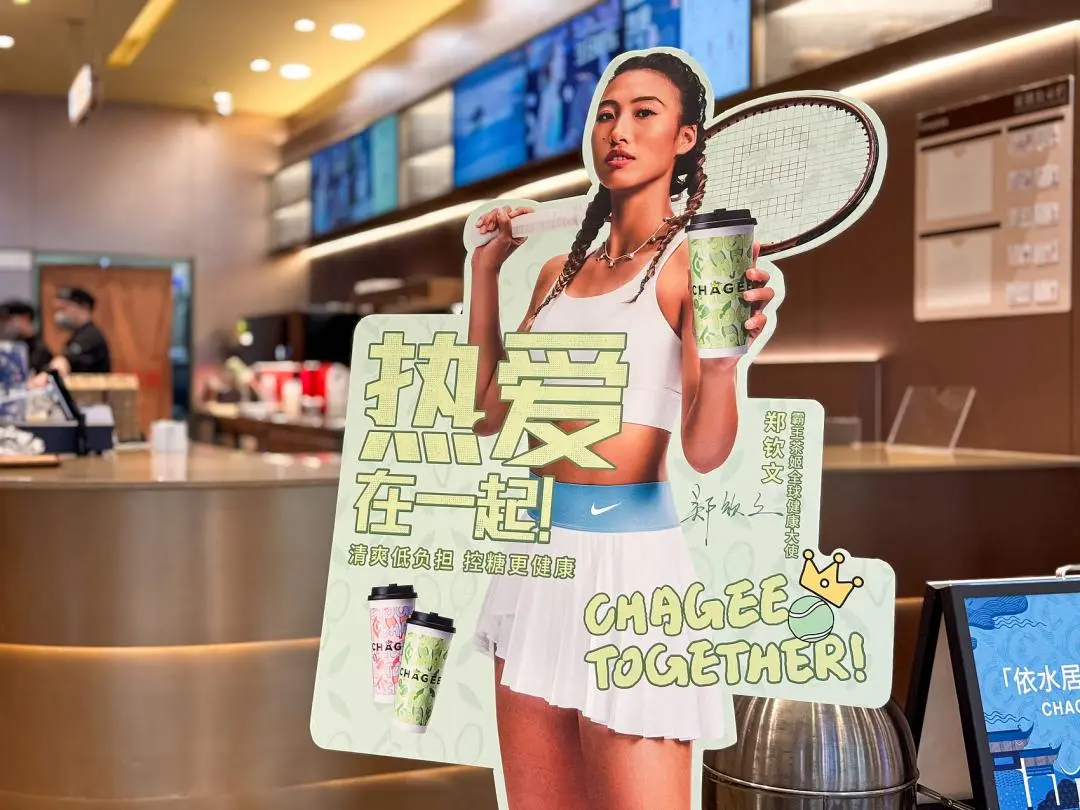
In the queue to list these tea brands, Bawang Tea is also the only one to choose to go to the United States.
Bawang Tea Ji wants to tell the world a story of tea culture. As early as the establishment of Bawang Tea, Zhang Junjie said that he would "serve consumers in 100 countries" and make a global tea brand. In its prospectus, it says its mission is to "meet friends with tea, link everyone with a cup of tea every day," and its vision is to "promote the modernization of tea drinking through technology and innovation."
Tea and coffee, cocoa together known as the world's three major drinks, in the coffee track, has Starbucks this boss, and tea this category, there seems to be a lot of imagination. Zhang Junjie once said that Bawang Tea Ji should be "pixel level" against Starbucks, to make "tea" more life, and at the same time, like Starbucks in the United States, the price is not too high, but improve the quality. It seems that Bawang Tea Ji does get a lot of inspiration from the process of coffee modernization: the automatic tea machine can be benchmarked against the automatic coffee machine, and the product is also one-to-one corresponding to coffee.
By the end of 2024, Bawang Cha Ji has 156 stores overseas, covering Malaysia, Singapore and Thailand. The next step is the United States, according to media reports, Bawang Tea Ji began to build a team in the United States in July 2023, the team of more than 20 people, the first North American store will land in Los Angeles in April.
This story is also for the capital markets. In the extreme domestic market, even Bawang Tea Ji is also facing the risk of slowing expansion and declining management level, and the foreseeable growth space is limited. The sale of Oriental tea to the world by Starbucks is another brand new story that has excited investors.
The success of Bawang Tea Ji has both the wisdom of promoting strengths and avoiding weaknesses, and has walked out of its own road of differentiation, as well as the luck of learning from others, and has gathered many valuable practices in the coffee and tea drinking industry. On Bawang Chaji, you can see the shadows of Starbucks, Cha Yan Yue, Luckin, Cha Bai Dao, Hecha and Misue Ice City.
Whether this "hexagonal warrior" and the Oriental tea culture it represents can withstand the test of US stocks and consumers around the world, the answer is not far from us.
